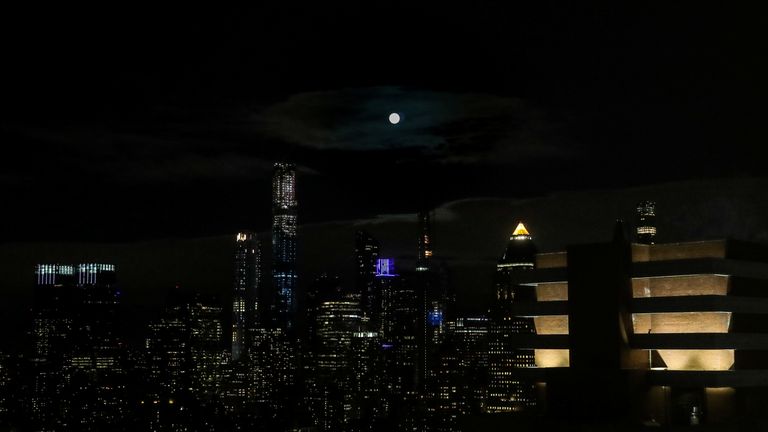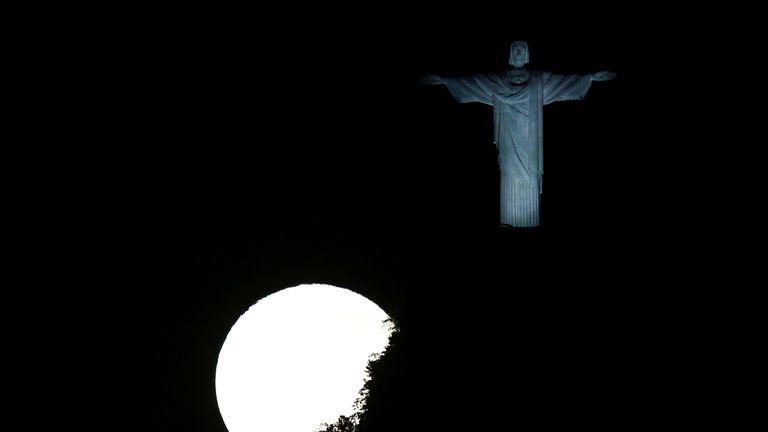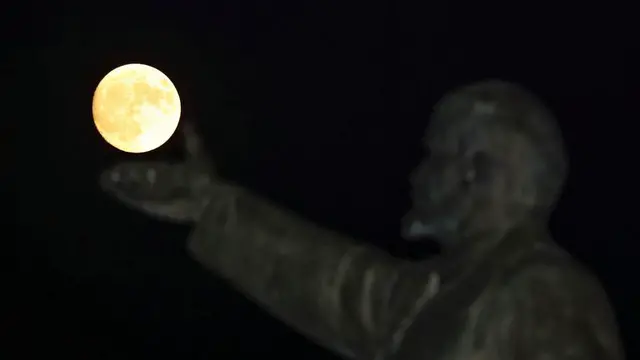Superstitions about the moon have for centuries inspired humanity to blame it for our moods, sanity, and even natural disasters - but new research has indicated it actually does have an impact on our sleep.
According to a scientific paper published in Science Advances, researchers found that human sleep cycles oscillate during the lunar cycle in both urban and rural areas.
In the days leading up to a full moon, people go to sleep later in the evening and sleep for shorter periods of time, say scientists from the University of Washington, Yale, and the National University of Quilmes in Argentina.

Image:The cycle even holds true in urban environments
The oscillations were observed regardless of whether an individual had access to electricity, although the size of the variations were less pronounced in individuals living in urban environments.
According to the researchers, the effect of the moon appears to ubiquitous across humanity, suggesting that the lunar cycle may be somehow synchronised with the phases of the moon.
"We see a clear lunar modulation of sleep, with sleep decreasing and a later onset of sleep in the days preceding a full moon," said Professor Horacio de la Iglesia.
"And although the effect is more robust in communities without access to electricity, the effect is present in communities with electricity, including undergraduates at the University of Washington."
The team used wrist monitors to track sleep patters among 98 individuals living in three Toba-Qom indigenous communities in the Argentine province of Formosa.
The three communities differed in their access to electricity during the study period, with one rural community having no electricity access, a second rural community having only limited access to electricity - such as a single source of artificial light in dwellings - while a third was located in an urban setting and had full access to electricity.
The same findings were repeated with 464 Seattle-area college students who had participated in a separate study.

Image:The researchers hypothesise humans evolved to synchronise with the lunar cycle
"We hypothesise that the patterns we observed are an innate adaptation that allowed our ancestors to take advantage of this natural source of evening light that occurred at a specific time during the lunar cycle," said lead author Dr Leandro Casiraghi.
"At certain times of the month, the moon is a significant source of light in the evenings, and that would have been clearly evident to our ancestors thousands of years ago," he added.
"In general, there has been a lot of suspicion on the idea that the phases of the moon could affect a behaviour such as sleep - even though in urban settings with high amounts of light pollution, you may not know what the moon phase is unless you go outside or look out the window.
"Future research should focus on how: Is it acting through our innate circadian clock? Or other signals that affect the timing of sleep? There is a lot to understand about this effect."
 简体中文
简体中文

